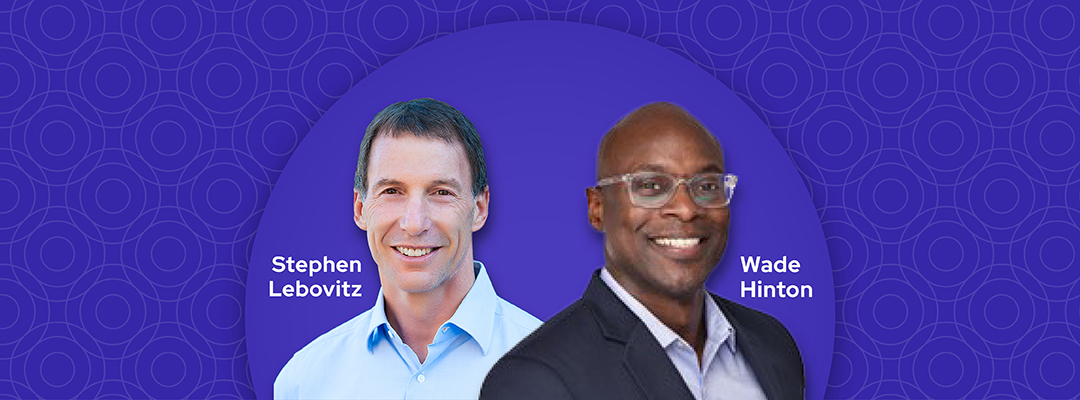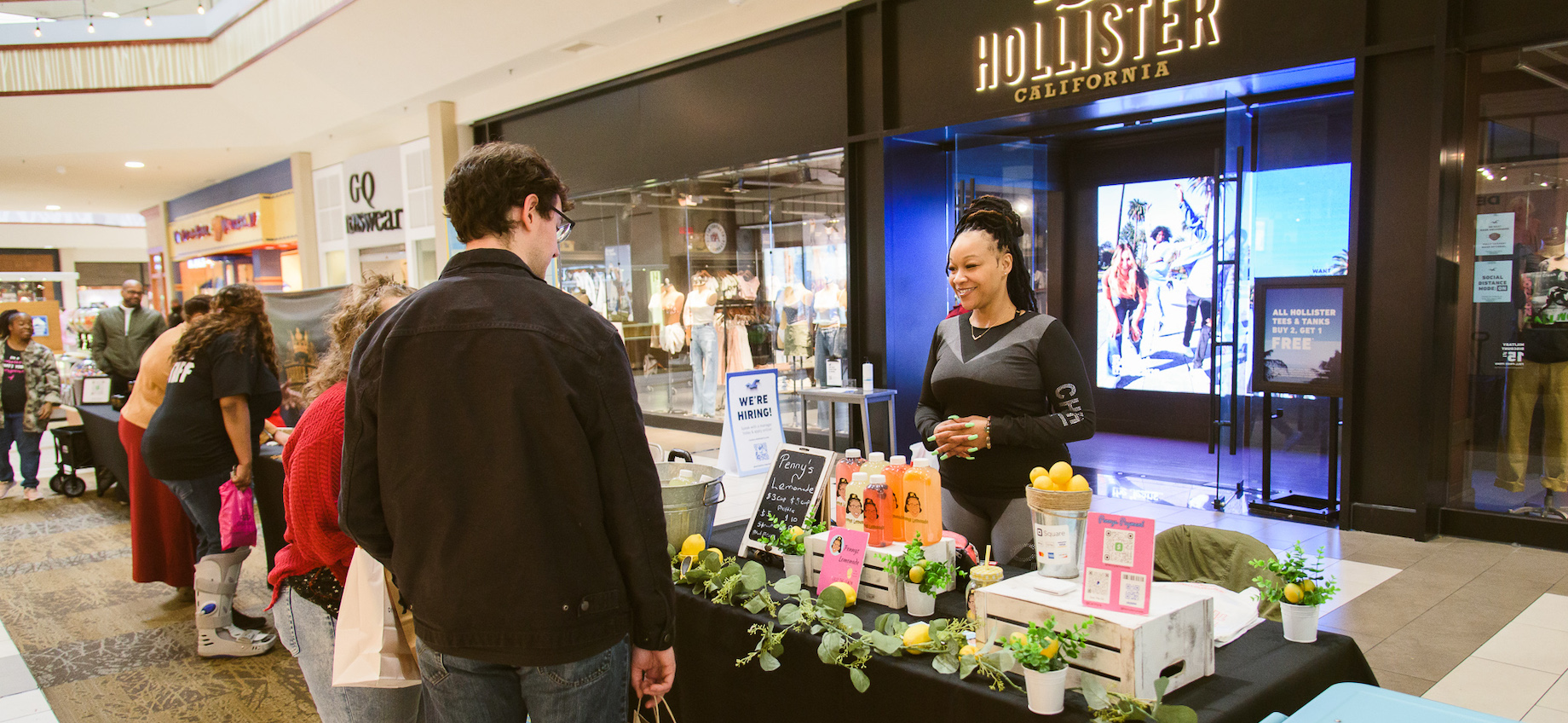Consumers, employees, stakeholders and investors are willing to reward companies that value ethical issues, from climate change to culture to transparency to inclusion. CBL long has been a thought leader in prioritizing “people, profits and planets,” as the ESG pillars sometimes are referred to. Now, it’s formalizing a holistic ESG strategy and as part of that effort has brought on Wade Hinton, a former Chattanooga city attorney and founder of Hinton & Co., a consulting firm that works with organizations on diversity, equity and inclusion planning. Commerce + Communities Today contributing editor Rebecca Meiser talked with Hinton and CBL CEO Stephen Lebovitz about best practices, how to get started and why DEI is interchangeable with ESG work.

Let’s start with the basics. Why is investing in ESG so important? Why is it something that those in the retail industry, specifically, should be thinking about?
Lebovitz: You have to have ESG as part of your strategy to be successful. Investors are more and more focused on it. They’re hearing that from constituents and stakeholders. Customers, especially those in the Millennial and Gen Z generations are specifically looking for retailers that have an impact strategy. They are actively seeking out companies that have made a commitment to ESG.
How is DEI work interconnected with ESG work? Can you have an ESG strategy without DEI?
Hinton: We tend to think about diversity and inclusion as only being around workforce, and it does have to do with what culture you’re creating at your organization. But ESG is more than just internal. When you are [a shopping center owner] like CBL, for instance, with customers coming onto your properties, you need to think, “What sort of space are you creating for them? Is it a space of belonging?” That’s all part of the ESG work.
Why did CBL chose to bring Hinton in to work on the DEI piece?
Lebovitz: We wanted to elevate the importance [of our work], and we didn’t have internally the resources or the expertise. Wade’s got a great background because he’s worked with [Unum], one of the largest companies in Chattanooga. He was their vice president of inclusion and diversity. He built their program really from the ground up. He brought in a lot of fresh thinking, and he has tremendous credibility. When people in the Chattanooga area hear that we’re partnering with Wade, they know we’re serious and we’re not just giving this lip service. A big objective of ours is to make sure that not just our employees but the community realizes that this is something that’s a real priority.
ESG encompasses everything from sustainability to racial and gender balance. It can seem overwhelming to begin forming a strategy. How did CBL start?
Lebovitz: We started with the low-hanging fruit at the properties. We thought about things like lighting and utility consumption. Just core sustainability things where we were big consumers. We figured out how we could be more efficient from a sustainability point of view. We also formed internally a group we call CBL Community. It’s a team member-led committee dedicated to enhancing inclusion, equity, diversity and belonging throughout our organization, our properties and our communities.
CBL Community really has two focuses, I understand: One is the internal component: how employees view CBL’s workplace practices, procedures and opportunities for advancement and how the company can change those practices to create a more inclusive and diverse organization. The other component is external. Can you talk through what the CBL Community’s internal practice looks like?
Lebovitz: Over the last several months, Hinton & Co. has coordinated with CBL leadership to conduct one-on-one interviews, focus groups and a companywide inclusion survey. One of the things that Wade has brought to us is: We’ve never gone out and surveyed our employees to see how they feel. Just getting that knowledge is critical for us to figure out where we need to prioritize and what we need to do next.
With the external lens, I know the CBL Community leadership has considered questions like what types of organizations CBL partners with, where it recruits tenants and how to build a more diverse tenant background. Have you seen any changes since these conversations started 18 months ago?
Hinton: More of the conversations and programming have already begun to shift, whether it’s around marketing or the kinds of events taking place at the centers. Employees are now raising their hands with all of these ideas, and innovation is taking shape. It’s been great to watch.
When surveying employees to understand their perspectives, what specific questions should one ask?
Hinton: You want to really get a sense of whether these employees feel like they can be their true selves in the workplace. You want to understand whether they believe the company is committed to creating an inclusive space and whether they believe that, irrespective of background, they could succeed at that company. Everyone wants to feel like they have a company that believes in them but also that they have a path to success there. We had a series of focus groups and open-office sessions where employees and team members could come and just talk about what’s important to them, where there are challenges and what their vision is for a more inclusive organization. Just starting there creates some momentum.
Asking people to be vulnerable like that feels a little risky. Were some resistant to these questions?
Lebovitz: Absolutely. I think [for] some people, it’s out of the comfort zone or they’re not sure about why are we doing this. They might think, “We’re not the one leasing space to a tenant directly.” That’s why you need to point out the specific benefits of this work. For us, it has helped us broaden the types of retailers that we can add to our properties. It’s helping us to recruit for our team internally. The more we can do to point out those specific benefits, the easier it makes it to get more of a consensus behind this.
In February, you hosted your first Black-owned-business expo, at Hamilton Place mall, with more than 30 vendors from the Chattanooga, Tennessee, area. Did that event come from these meetings?
Hinton: Yes, a lot of that comes from those conversations with CBL Community.
Lebovitz: The event was very successful. Traffic for that Saturday was up double digits over the same Saturday [pre-pandemic] in 2020 and up over other key shopping periods like tax holidays and average Saturdays in December [excluding Christmas weekend]. The vendors in attendance were thrilled with the turnout, and some sold out of product before the expo concluded. It benefited mall retailers and food court tenants, who also saw an increase in traffic and sales throughout the day.

Black-owned-business expo in February at CBL’s Hamilton Place outside Chattanooga, Tennessee, also pictured at top
What do you hope comes from hosting these types of events?
Lebovitz: We want to offer small business owners a platform to grow their business and reach new customers. The events also give us the opportunity to build relationships with business owners that may be ready to take the next step, go through our pop-up program or consider longer-term engagements at our properties. I have already challenged our team to do several more of these events this year. We are also looking to expand the program beyond just Black-owned businesses [to] women-owned businesses and more.
Do you have suggestions for how other marketplaces leaders should start their ESG processes?
Lebovitz: If you can find the right partner like Wade is for us, definitely work with that partner, and also tap into your organization at all levels. There are so many great ideas that you already have within the organization. That combination of internal energy and external expertise is really the way to move forward and maximize your chances of success.
And what does success look like?
Hinton: There are some success-metric goals based on what CBL determines to be key priorities. We want to be able to measure those quantitatively. I have no question that when you look at the types of policies that might be amended or how recruiting may show up differently, the retention rates — all of those things — will show up differently in a few years. But what might not necessarily be measured is when an employee has a particular experience [with our ESG work] and feels a sense of connection or when a customer shows up at one of the properties and feels a sense of belonging because of the community that’s been created based on the work. While we won’t be able to measure that immediately, we do think that is also as impactful.
Where are you in the process? Is there a point where you feel like you’ll be done with the ESG work?
Lebovitz: We look at it as a journey. There’s not a logical end where you say, “All right, we’re done, we can move on.” This is going to continue to be a process.